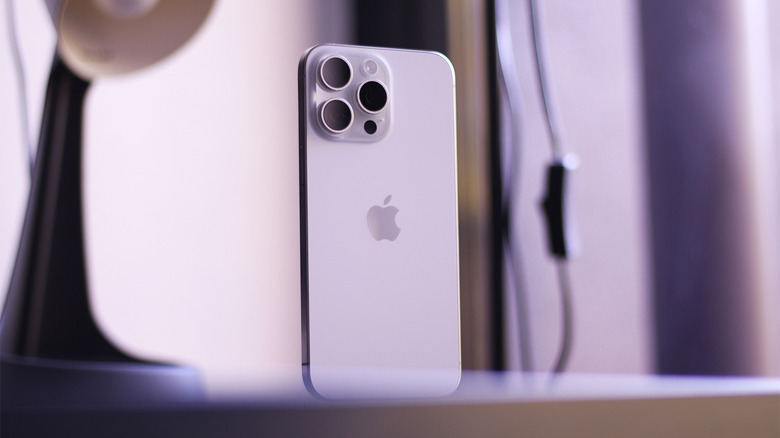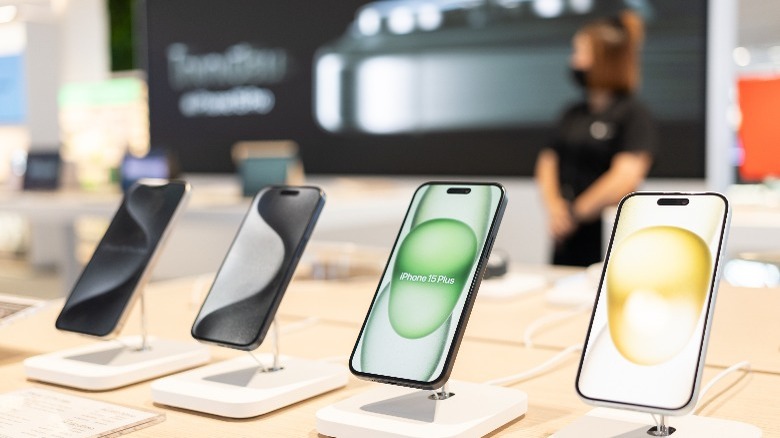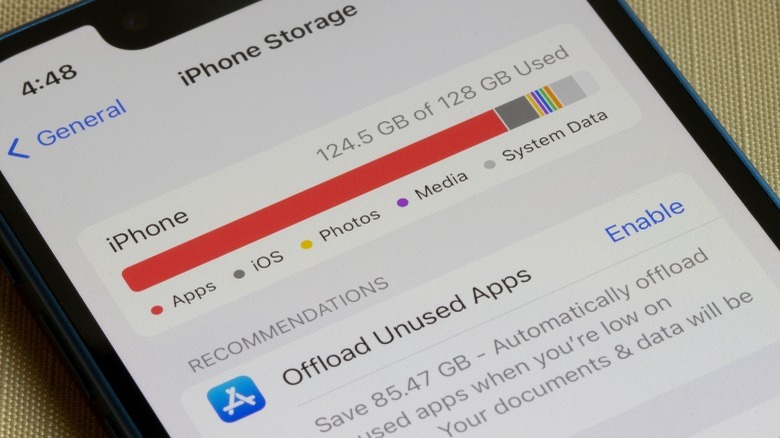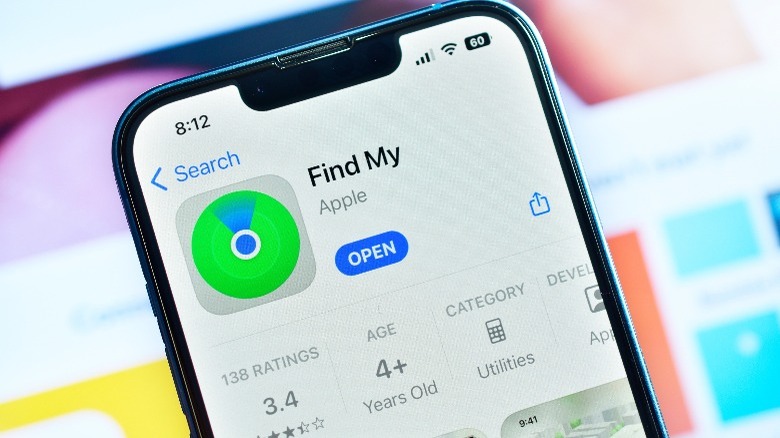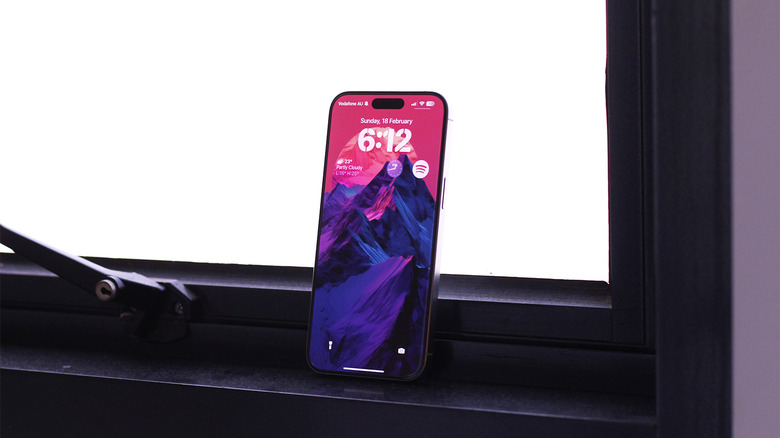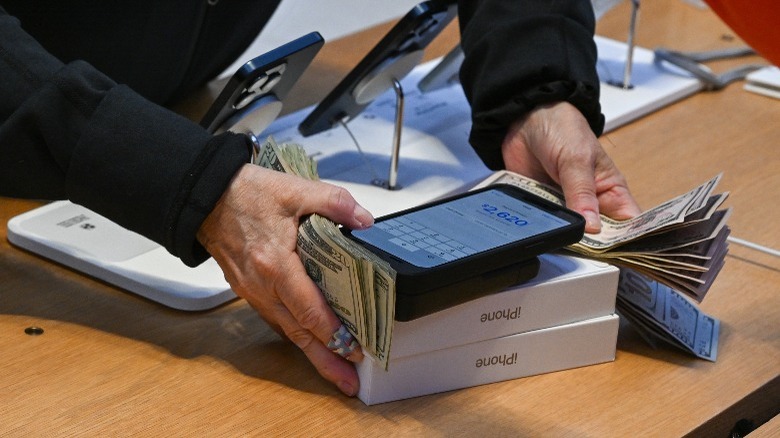5 Common Mistakes People Make When Buying A New iPhone
The release of new iPhones is greatly anticipated, with Apple selling hundreds of millions of units every year. While Apple's products are rather infamous for their "if it ain't broke, don't fix it" mantra, the iPhone does receive commendable under-the-hood changes with every iteration. While most of these changes might not stand out when comparing two adjacent models, the upgrades become significantly noticeable if you're coming from a phone that's a few years old.
Apple sells a wide range of iPhones, from different models in the latest series to older generation devices at discounted prices. In such a case, is it smarter to buy an older iPhone? What about purchase options outside of Apple? Can you trust third-party retailers or individual sellers to buy used or refurbished smartphones?
As you can see, purchasing a new iPhone is as exciting as it is daunting. For most, a smartphone is a long-term investment, and these devices aren't exactly cheap, either. This is why there are some things you should avoid or be wary of when buying a new device. Here are a few of the most common mistakes prospective buyers make when shopping for their new iPhone.
Not picking the right model
Over the years, the iPhone lineup has branched out to fit an even wider array of consumers. For years, you could only buy one size, and then came the Plus models. Apple even experimented with a Mini model and currently accommodates two sizes each for the regular and Pro devices. The smaller iPhones are best suited for those looking for comfort and one-handed use. But if you consume a lot of media on your phone, you might regret not picking up either the Plus or the Pro Max variant.
Then comes the dilemma of picking between the base variant iPhone or splurging for the Pro series. An extra few hundred dollars will get you a faster processor, more RAM, better cameras, and a display that refreshes twice as fast. These are all hardware features you'd miss out on if you pick the wrong model. This goes both ways, too, since you might regret paying for the premium if you do not care for these additions to begin with.
Skimping out on storage
Like most modern smartphones, iPhones don't have expandable physical storage. Apple charges exorbitantly for storage upgrade options, and while there are tricks to help you clear up your iPhone's storage, the last thing you want to see on a newly bought iPhone is the low storage warning.
Apps are not the only category that require storage. Media such as photos, videos, and documents eat away chunks of your phone's space over time. System files like iOS installation packages and cached data also require free space. In due time, your iPhone will refuse to install new apps or capture any new memories using the camera.
Sticking with the lowest storage tier isn't the end of the world — there are plenty of reliable cloud storage solutions that have become increasingly more relevant now. If you take plenty of images, you can use iCloud to access your photos anywhere. By default, you get 5 GB of free cloud space, which can be expanded via a subscription. You can also use iCloud to store documents or to back up your device.
Buying from individual sellers
It's no myth that iPhones hold up their resale value greater than most phones, and it's not unusual to find certain good deals on refurbished or used handsets through platforms like eBay or Facebook Marketplace. There are notable differences between new, used, and refurbished phones, and while you can rely on trusted retailers for slightly discounted yet fully functional iPhones, you need to be extra careful when purchasing one from an individual seller.
Beyond the obvious concerns regarding the phone's physical condition, you need to consider things like activation locks. Given their popularity, iPhones are prone to theft, but they can be protected using Apple's Find My service. One can take action remotely if an iPhone goes missing or is stolen.
The last thing you want is to spend hard-earned cash on a seemingly amazing deal only to find out the device was reported stolen and is locked. So the next time you see a listing for a relatively new iPhone that makes you think, "That must be too good to be true," act on your gut instincts and avoid such deals.
Not protecting your iPhone
iPhones are as gorgeous as they are delicate. A single drop on concrete may cost you up to $500 if you manage to crack both the front and the rear glass panels. The easiest solution to this is to pick up a sturdy case to cushion inevitable falls. Given just how slippery iPhones are, cases also help immensely with the grip. A good phone case covers all four sides and has a raised lip to protect the display as well as the camera array.
Another way to escape the ugly reality about iPhone repairs is to add a screen protector up front. These not only shield the device from scratches, but high-quality tempered glass screen protectors give your display a second chance at life. Buying an AppleCare+ subscription is also a step recommended towards insuring your expensive new purchase. Under its coverage, you can bring the repair cost down astronomically and enjoy exclusive privileges like express replacement and priority support.
Not buying it outright
In the U.S., it is very common to purchase a new phone through a carrier like T-Mobile, Verizon, or AT&T. Contracts such as these give you the flexibility of paying for your device in installments that can span over a few months to even years. This brings the initial cost of investment down considerably.
While carrier plans enable people to upgrade to better smartphones by reducing financial worries, they also have their fair share of pitfalls. For starters, you are often locked into the service, which means dealing with possible poor reception or unsatisfactory customer service for as long as your phone installments continue.
Purchasing a phone outright may leave a dent in your wallet at first, but it will grant you the freedom to hop between different phone carriers while not worrying about monthly payments. There's no right or wrong answer, but picking a reliable phone provider and scanning for any hidden costs may go a long way.
